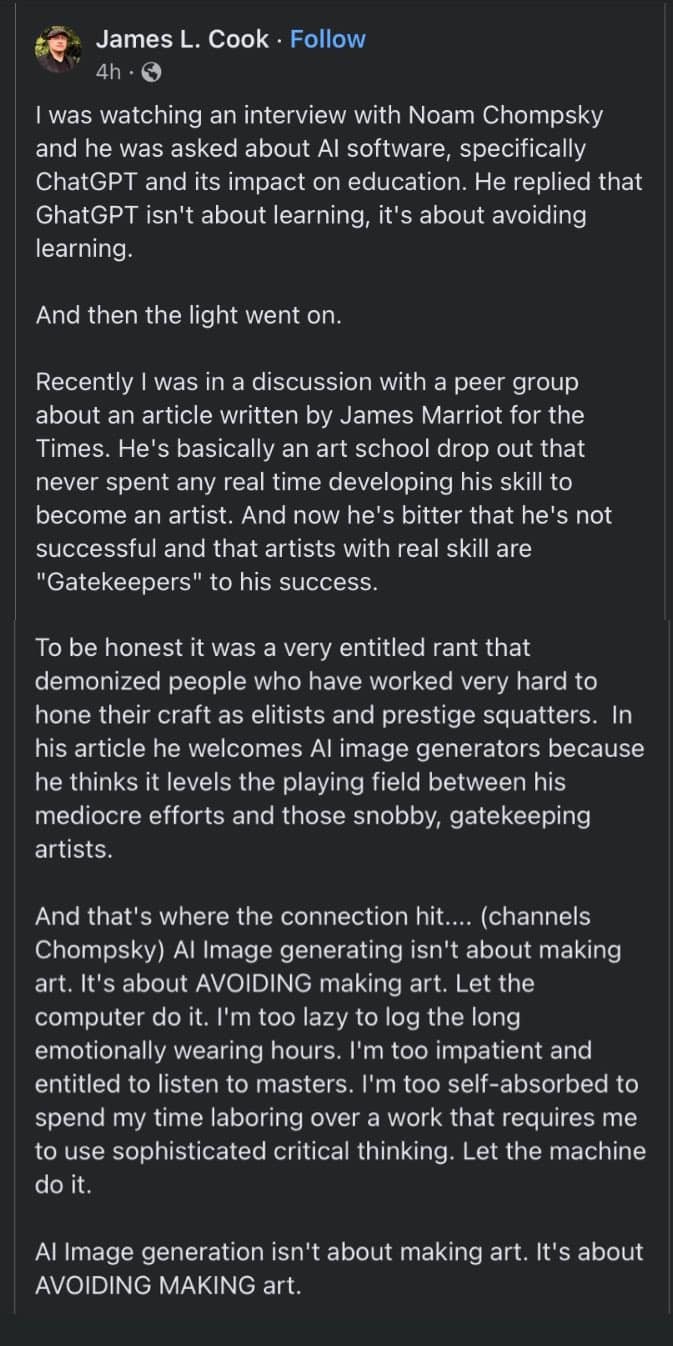Mothymyths - Mothy Myths Studios

More Posts from Mothymyths and Others



i feel like this is important enough to put on here.
if you have any videos on youtube make sure this is unchecked


It’s time. We have risen.

Happy November!

1. More children are surviving today than ever before.
Close to 8 million more children in the world survive to see their fifth birthday than in 1990 — a 60 percent decline in annual under-five child mortality.
UNICEF and partners have contributed to this remarkable achievement through proven, sustainable solutions for improving maternal and child health care services and strengthening disease prevention — and delivering those solutions at scale...
2. Vaccines have saved 154 million lives in the last 50 years.
As the world’s largest vaccine supplier, UNICEF procures and distributes enough vaccines annually to immunize 45 percent of the world's children. In 2023, UNICEF supplied 2.8 billion vaccine doses to 105 countries, up from just over 2 billion to 102 countries in 2020. Through widespread immunizations, polio is on the brink of eradication.
3. Safe water is available to over 2.1 billion more people compared to 20 years ago.
Consistent access to a sufficient supply of safe water for drinking, cooking and personal hygiene is the foundation for child survival, healthier lives, stronger economies and more sustainable societies. With support from UNICEF and partners, more than a quarter of the world's population gained access to safe and clean drinking water in the past two decades.
UNICEF-supported programs help ensure access to safe water for 35 million people around the world every year. UNICEF also leads coordinated emergency response efforts related to safe water access in roughly 85 percent of countries affected by crises. In 2023, over 42 million people in 73 countries were reached with emergency water services, helping to prevent outbreaks of cholera and other waterborne diseases.
To help build community resilience to climate shocks, UNICEF has also supported the installation of more than 8,900 solar-powered water systems in 56 countries — an important climate adaption measure that also reduces the use of fossil fuels.
4. The number of children with stunted growth due to malnutrition has declined by 40 percent since 2000.
For more than two decades, UNICEF has been the world’s largest procurer of ready-to-use therapeutic food (RUTF), procuring up to 80 percent of global demand, ensuring children suffering from severe malnutrition can be treated successfully.
5. Over 68 million child marriages have been averted in the last 25 years, giving girls their childhoods back.
In the late 1990s, 1 in 4 young women aged 20 to 24 were married as children. Today, it's 1 in 5. UNICEF has played an important role in global efforts to end child marriage, supporting 35 countries in implementing action plans, and working at the community level and across the health, education and other sectors to increase knowledge and change attitudes around the practice.
In 2023, UNICEF reached 11 million adolescent girls with prevention and care interventions empowering them to delay marriage and choose their own futures.
6. Fewer kids are out of school.
The world stands on the cusp of realizing primary education as a basic right of every child. A world where more children learn is a world that is healthier, more prosperous and more resilient.
In the early 1950s, roughly half of all primary school-aged children were out of school. Now it's less than 10 percent. And every year, 23 million more girls are completing secondary school compared to a decade ago...
7. The world is on track to eliminate open defecation by 2030.
In the last two decades, 2.5 billion people have gained access to safely managed sanitation, while the number of people practicing open defecation has also declined by two-thirds — from 1.3 billion in 2000 to 419 million in 2022 — putting the world on track to eliminate the practice entirely.
Ending open defecation drastically lowers the risks of diseases and malnutrition among children in low-income and lower-middle-income countries. Child deaths from diarrhea — a leading killer of young children — have already decreased by 60 percent...
8. Birth registration rates are way up.
Today, 77 percent of children under 5 are registered, up from 60 percent in the early 2000s — a major leap towards ensuring every child has a legal identity and can access health, education and other essential services...
Countries that prioritize birth registration see rapid progress. In Côte d’Ivoire, birth registration prevalence rose steadily from 65 percent in 2012 to 96 percent by 2021, proving that change at scale is possible.
9. A future free from HIV seems possible, one baby at a time.
An estimated 1.9 million deaths and 4 million HIV infections have been averted among pregnant women and children in the past 25 years...
10. In times of crisis and emergency, UNICEF is there — helping to save more children's lives than any other humanitarian organization.
[Note: Okay, I think they're cheating listing this one, but the article header said 10 things, so if I included only 9 it would be weird. Obviously this is an article from UNICEF, but UNICEF's data, reporting, and statistics are considered to be of high quality.]
-via UNICEF, February 25, 2025
Skip Google for Research
As Google has worked to overtake the internet, its search algorithm has not just gotten worse. It has been designed to prioritize advertisers and popular pages often times excluding pages and content that better matches your search terms
As a writer in need of information for my stories, I find this unacceptable. As a proponent of availability of information so the populace can actually educate itself, it is unforgivable.
Below is a concise list of useful research sites compiled by Edward Clark over on Facebook. I was familiar with some, but not all of these.
⁂
Google is so powerful that it “hides” other search systems from us. We just don’t know the existence of most of them. Meanwhile, there are still a huge number of excellent searchers in the world who specialize in books, science, other smart information. Keep a list of sites you never heard of.
www.refseek.com - Academic Resource Search. More than a billion sources: encyclopedia, monographies, magazines.
www.worldcat.org - a search for the contents of 20 thousand worldwide libraries. Find out where lies the nearest rare book you need.
https://link.springer.com - access to more than 10 million scientific documents: books, articles, research protocols.
www.bioline.org.br is a library of scientific bioscience journals published in developing countries.
http://repec.org - volunteers from 102 countries have collected almost 4 million publications on economics and related science.
www.science.gov is an American state search engine on 2200+ scientific sites. More than 200 million articles are indexed.
www.pdfdrive.com is the largest website for free download of books in PDF format. Claiming over 225 million names.
www.base-search.net is one of the most powerful researches on academic studies texts. More than 100 million scientific documents, 70% of them are free
Also, I am just going to say it:
If your CEO is so inconsequential to the success of your company that he can be gunned down in the street like a dog and it has absolutely no impact on your company whatsoever, maybe he doesn't actually need to be paid several hundred times as much as your median employee.
Maybe you could get away with, like, ten to fifteen times and spend the extra tens of millions of dollars you save on something else.
Just thinking out loud.

-
 shifterofsheep liked this · 1 month ago
shifterofsheep liked this · 1 month ago -
 pansexualgoddess liked this · 1 month ago
pansexualgoddess liked this · 1 month ago -
 mike-the-nike liked this · 1 month ago
mike-the-nike liked this · 1 month ago -
 knifeypoo liked this · 1 month ago
knifeypoo liked this · 1 month ago -
 sharkmanjr liked this · 1 month ago
sharkmanjr liked this · 1 month ago -
 stardust2bones liked this · 1 month ago
stardust2bones liked this · 1 month ago -
 berry-gurlfriend liked this · 1 month ago
berry-gurlfriend liked this · 1 month ago -
 sophisticated123 liked this · 1 month ago
sophisticated123 liked this · 1 month ago -
 bagelsarerad liked this · 1 month ago
bagelsarerad liked this · 1 month ago -
 weansandbieners liked this · 1 month ago
weansandbieners liked this · 1 month ago -
 ridiculouspanda33 liked this · 1 month ago
ridiculouspanda33 liked this · 1 month ago -
 montycastrate liked this · 1 month ago
montycastrate liked this · 1 month ago -
 abood-5 reblogged this · 2 months ago
abood-5 reblogged this · 2 months ago -
 micia5 liked this · 2 months ago
micia5 liked this · 2 months ago -
 sympangala liked this · 2 months ago
sympangala liked this · 2 months ago -
 whacknuggets reblogged this · 2 months ago
whacknuggets reblogged this · 2 months ago -
 everything888769 liked this · 2 months ago
everything888769 liked this · 2 months ago -
 ttobiiou liked this · 2 months ago
ttobiiou liked this · 2 months ago -
 goose-the-kitty reblogged this · 2 months ago
goose-the-kitty reblogged this · 2 months ago -
 girlinmidwestcrisis liked this · 2 months ago
girlinmidwestcrisis liked this · 2 months ago -
 spwcmortis liked this · 2 months ago
spwcmortis liked this · 2 months ago -
 sevanholmes liked this · 2 months ago
sevanholmes liked this · 2 months ago -
 ineffable-mess liked this · 2 months ago
ineffable-mess liked this · 2 months ago -
 ellsza09 liked this · 2 months ago
ellsza09 liked this · 2 months ago -
 crawlerr liked this · 2 months ago
crawlerr liked this · 2 months ago -
 softpastelplushies liked this · 2 months ago
softpastelplushies liked this · 2 months ago -
 theeepiestfroggo liked this · 2 months ago
theeepiestfroggo liked this · 2 months ago -
 westandforships liked this · 2 months ago
westandforships liked this · 2 months ago -
 delicatekidtree liked this · 3 months ago
delicatekidtree liked this · 3 months ago -
 mimicryxmandzzy liked this · 3 months ago
mimicryxmandzzy liked this · 3 months ago -
 sillysucklet liked this · 3 months ago
sillysucklet liked this · 3 months ago -
 headlessmari liked this · 3 months ago
headlessmari liked this · 3 months ago -
 tampire liked this · 3 months ago
tampire liked this · 3 months ago -
 bean-killer123 liked this · 3 months ago
bean-killer123 liked this · 3 months ago -
 thenonbinaryghost liked this · 3 months ago
thenonbinaryghost liked this · 3 months ago -
 amorphe-ium liked this · 3 months ago
amorphe-ium liked this · 3 months ago -
 aftersunave liked this · 3 months ago
aftersunave liked this · 3 months ago -
 explosionartist liked this · 3 months ago
explosionartist liked this · 3 months ago -
 imatrashrat liked this · 3 months ago
imatrashrat liked this · 3 months ago -
 dance-with-ripples-of-starlight liked this · 3 months ago
dance-with-ripples-of-starlight liked this · 3 months ago -
 raccoon-robyn reblogged this · 3 months ago
raccoon-robyn reblogged this · 3 months ago -
 smoll-rat liked this · 3 months ago
smoll-rat liked this · 3 months ago -
 sunnypearldoesthings liked this · 3 months ago
sunnypearldoesthings liked this · 3 months ago -
 non-stoppp liked this · 3 months ago
non-stoppp liked this · 3 months ago -
 lolkabolkaa liked this · 3 months ago
lolkabolkaa liked this · 3 months ago -
 del-pato-justone liked this · 3 months ago
del-pato-justone liked this · 3 months ago -
 b33smovie liked this · 3 months ago
b33smovie liked this · 3 months ago -
 sherryholmes liked this · 3 months ago
sherryholmes liked this · 3 months ago
